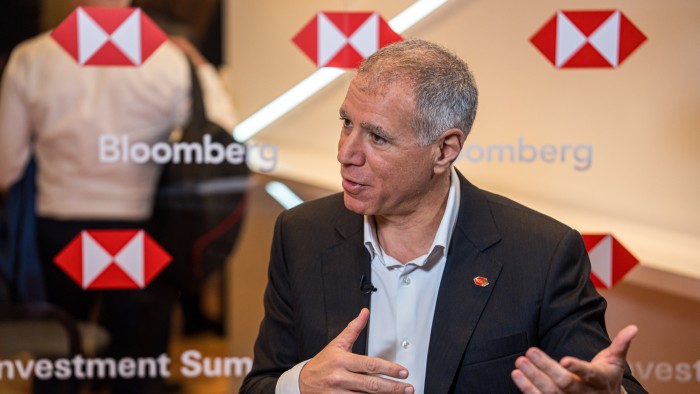Staff at HSBC were delivered a sobering message about the frailties of working in high finance in March after the bank fired investment bankers on the day they were due to learn about their bonus figures.
The bankers were made redundant as part of new chief executive Georges Elhedery’s plans to streamline the company but the move also served as a stark reminder to employees across the financial services industry of the thin ice they sometimes tread when it comes to job security.
And the ice has been particularly thin of late. Alongside the redundancies at HSBC, Deutsche Bank said it would axe 2,000 more jobs this year, while Lloyds Banking Group announced plans to cut 500 jobs and close two offices.
Cuts have come elsewhere too in finance, with wealth manager St James’s Place announcing it will remove 500 positions and hedge fund company Brevan Howard chopping 100 jobs amid a period of poor performance.
Despite the industry-wide job losses, however, a list of Europe’s best employers, compiled by the Financial Times and data provider Statista, shows that banking and financial services firms make up a large share of company names to appear in the ranking.
Employment experts say that this is because of the high salaries on offer, the prime location of offices, and the potential for career development. Staff, the experts add, are willing to live with the ever-present threat of job cuts as a result.
“Financial firms are huge employers, with operations that are vast both in scale and geographic distribution,” says Chris Eldridge, chief executive, UK, Ireland and North America at Robert Walters, a headhunter and recruiter that specialises in investment banking.
“As such, leading financial firms possess key attributes that set them apart from companies in other sectors. For example, their office space is usually high-specification and in desirable, city centre locations.
“Financial firms are also usually market leaders, with high profiles that have been developed over decades, making them an aspirational career move for professionals. Even a brief tenure can significantly enhance a professional’s future opportunities, given the often-global recognition that these companies command.”
Eldridge recognises, however, that big reputations often result in similarly big expectations on staff, such as a zero-tolerance approach to homeworking. Investment bank JPMorgan Chase, for example, ordered all of its employees to return to the office full time in March.
“Many firms will have stringent requirements, such as demanding five days in the office, longer hours, and limited flexibility. But these demands are often counterbalanced by attractive salaries and career advancement prospects,” says Eldridge.
Dani Grieveson, an executive coach, who has worked with a number of chief executives at financial companies, agrees.
“Financial firms dominate the list because they harness a powerful and potent concoction of prestige, purpose, presence and pay,” she says, adding that many employees know what they are getting into when they join the sector.
“When you step into a culture where firing is common, you expect to feel the heat. For many, this pressure is a crucible, not a curse,” she says.
That culture was plain to see when HSBC sacked the cohort of investment bankers without bonuses on the day they expected to be told the size of their annual payout, in a sign of how the bank is taking a more ruthless approach to costs.
Elhedery has pushed to make significant cost savings at HSBC since taking the reins in September last year. In February, the bank unveiled plans to save $300mn in 2025 as well as cutting $1.5bn from its annual cost base by the end of next year.
Grieveson says: “HSBC’s move to cut roles on bonus day was, understandably, seen as ill-timed. But there is no elegant hour for harsh news. This is the reality of business life in high-stakes environments. The cultural norm in finance is one of resilience over reassurance.”
Recruiters are also quick to point out that financial firms are not alone when it comes to job cuts. Flatlining economies and growing fears about recessions across the world — particularly in the wake of Donald Trump’s trade war — has meant employees have been feeling the squeeze in many other sectors.
Adidas, for example, said it was slashing up to 500 roles at the sports company’s Herzogenaurach headquarters in Germany, while delivery firm UPS plans to cut roughly 20,000 positions in the US in 2025. Discount supermarket chain Aldi also said it intends to remove 350 head office roles.
“It must be remembered that cutbacks are being experienced in businesses across virtually every other sector,” says Eldridge.




